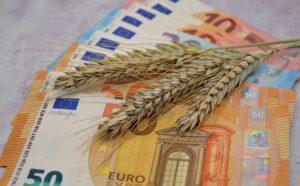In the OECD, food inflation slowed down in January
In the countries belonging to the Organization for Economic Co-operation and Development (OECD), the annual growth of consumer prices slowed to an average of 5.7 percent in January from 6 percent in December, when an increase was recorded for the first time after three months of decline.
 According to the data posted on the website of the Paris-based organization, inflation fell in two-thirds of the 38 OECD countries in January, and inflation or deflation below 3 percent was recorded in 14 countries.
According to the data posted on the website of the Paris-based organization, inflation fell in two-thirds of the 38 OECD countries in January, and inflation or deflation below 3 percent was recorded in 14 countries.
In the OECD, energy prices fell by 3.3 percent in January after a more modest 2.3 percent decline in December. Food price growth slowed from 6.7 percent in December to 6.2 percent in January.
Core inflation excluding food and energy prices was 6.6 percent in January after 6.7 percent in December. Inflation in the G7 countries was 2.9 percent in January after 3.2 percent in December. In the eurozone, the harmonized index of consumer prices (HICP) calculated for EU comparison purposes from 2.9 percent in December
Related news
Stagflation and structural erosion in transportation: the profit recession of the Hungarian SME transportation sector has been going on for nine quarters
🎧 Hallgasd a cikket: Lejátszás Szünet Folytatás Leállítás Nyelv: Auto…
Read more >Related news
Nestlé to sell remaining ice-cream assets but commits to Froneri venture
🎧 Hallgasd a cikket: Lejátszás Szünet Folytatás Leállítás Nyelv: Auto…
Read more >40 secure jobs, sustainable solutions – new BURGER KING® in Csepel
🎧 Hallgasd a cikket: Lejátszás Szünet Folytatás Leállítás Nyelv: Auto…
Read more >









